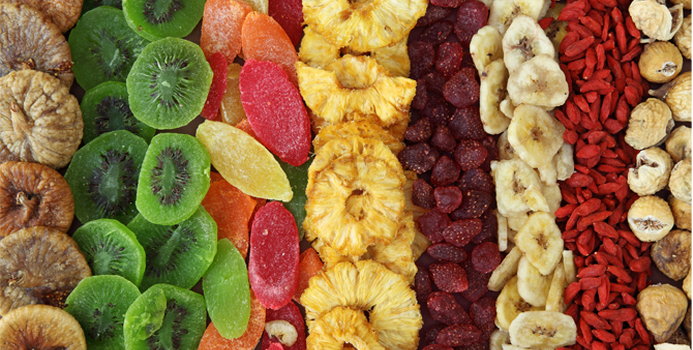Dried fruit is very popular. Some of the most well known varieties include raisins, apricots, cranberries and plums. As the name suggests, they are made by removing 90% of water from fresh fruits. After the dehydration process, fruits can be stored for a much longer period of time even without refrigeration. Dried fruits are concentrated with fiber and a wide variety of essential nutrients. They are also stronger in flavor which makes them deliciously healthy snacks when fresh fruits are not handy.
Vitamin A for Healthy Eyes and Skin
Dried fruits are an excellent source for vitamin A. You need vitamin A for lots of functions in your body including gene transcription, bone health and absorption of other nutrients. Vitamin A is especially crucial to your eyes and skin. It is an integral part of your retina. Without adequate vitamin A intake, you may suffer symptoms like night blindness and loss of colored vision. You may also have increased risk for macular degeneration.
Vitamin A also affects your epithelial cells. This vitamin acts like a growth hormone to promote skin cell regeneration. It also controls the amount of oil secreted by your sebaceous glands. Having enough vitamin A can help prevent acne breakouts and improve your skin tone.
Balanced Minerals for Blood Pressure Control
Dried fruits are very low in sodium with less than 35 milligrams in each serving (about 40 grams). They are also high in potassium. Studies have shown that a low sodium, high potassium diet can significantly lower your risks for high blood pressure and heart disease.
Dried fruits are also a great source for magnesium. Magnesium allows your blood vessels to relax which can further reduce your blood pressure. Additionally, magnesium intake can help prevent cramps and spasms, and promotes faster recovery after strenuous exercises.
Niacin and Vitamin B6 for Cholesterol Management
Having dried fruits is also a sweet way to control your blood cholesterol. It is a rich source of niacin which can improve your blood cholesterol profile. Niacin is proven to reduce LDL and triglyceride and raise your HDL level in your blood. This combined action significantly lowers your chances for plaque formation and arterial blockage.
Vitamin B6 also reduces your cholesterol. It removes homocysteines from your blood which causes cholesterol to coagulate and form deposits. Increased intake of this vitamin along with niacin can help optimize your cholesterol and prevent heart diseases.
Iron for Better Oxygenation
You need iron to make healthy red blood cells to deliver oxygen throughout your body. Adequate iron must be supplied to avoid anemic symptoms like fatigue, weakness, palpitation, hair loss and blanched skin. During and after intense exercise, your muscles require more efficient oxygenation which also raises the demand for iron. Having a serving of dried fruits is a great way to deliver an extra 10% of iron to your body.
Caution to Dieters: High Calories and High Sugar
Because of the water extraction process, dried fruits have significantly higher sugar concentration and calorie count than fresh fruits which may make them unsuitable for some people. On average, each serving of dried fruits holds about 130 calories and 20 grams of sugar. If you are a diabetic or if you are on a weight loss diet, moderate your intake of dried fruits to avoid unwanted effects.



